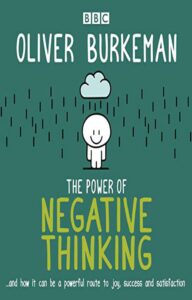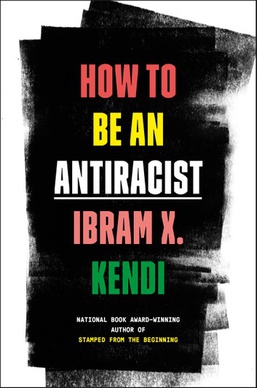This week’s selected media, November 3, 2024: Be Useful, the Power of Negative Thinking, How to Be an Antiracist
This week I finished:

Be Useful: Seven Tools for Life, by Arnold Schwarzenegger: I got this book expecting something to pass the time and got much more. Maybe it’s just me, but I find it easy to forget how Arnold Schwarzenegger is just a regular person like you and me who has achieved a lot.
He isn’t lucky. He wasn’t born rich. He didn’t have any special advantages. He isn’t a robot from the future with superhuman powers.
He’s disciplined. He has vision. He persists. He learned how to work with people, manage emotions, acknowledge his weaknesses, and more. As a result of these things and more he’s achieved greatness in several areas of life where many of us would consider ourselves outstanding if we achieved ten percent of what he did. He also sounds like he’s created a wonderful, rewarding emotional life and sense of meaning.
In this book he shares what enabled much of his success. I listened to it. He read it. His voice is serious when it works, funny when it works, and quintessentially him.
Most of all is its effect on the reader. At least in my case, he led me to see how much more I can do. I can’t yet speak for the long-term results, but I found this book helping me expand my potential from where I thought it was to more and to enable and empower me to realize this greater potential.
What more do you want from a book or anything than it improves your life?

The Power of Negative Thinking: And How It Can Be a Powerful Route to Joy, Success and Satisfaction, by Oliver Burkeman: Oliver is one of my favorite podcast guests for seeing how the Spodek Method works. He clarified many of its principles and chose to enjoy experiencing their effects.
His book Time Management for Mortals was fun, thought-provoking, and fresh in a stale field (since Getting Things Done by podcast guest David Allen).
I got this audiobook because the library didn’t have his latest book, on meditation and it’s under two hours. It was entertaining and probably insightful, but I’m so advanced in reading this type of literature and practicing it, I think I mostly knew it already. I say “I think” because as he shared things, I felt I knew them from experience and research, but if you tested me on them I might not know them that well.

How to Be an Anti-Racist, by Ibram Kendi: I read this book a while ago but wanted to refresh since learning about how dominance hierarchies form and what happens when they do, in particular the competitive strategies they follow and the cultures they form.
Kendi gets close to understanding this anthropology in clarifying that racism didn’t cause racist power hierarchies, but that racist power hierarchies caused racism, to justify and perpetuate them. He doesn’t figure out what caused the power hierarchies, though, so he can’t understand or explain them beyond a Portuguese guy started it and it expanded from there.
Why then and there? Why did it expand? Kendi doesn’t explain, so he can’t distinguish racism from white supremacy. He acknowledges blacks can be racist and whites can be antiracist, but always within a hierarchy with whites at the top and blacks at the bottom. He gets that skin color doesn’t make people different besides skin color, but treats racism as one-way. But if both races are equal, he can explain why racism has gone one way historically, but can only treats it as one way, even considering black racists and white antiracists.
I have to write my book on race to resolve this common shortsightedness. He shares it with Robin DiAngelo. It keeps them from seeing the causes of racism that aren’t mere skin color.
Read my weekly newsletter

On initiative, leadership, the environment, and burpees